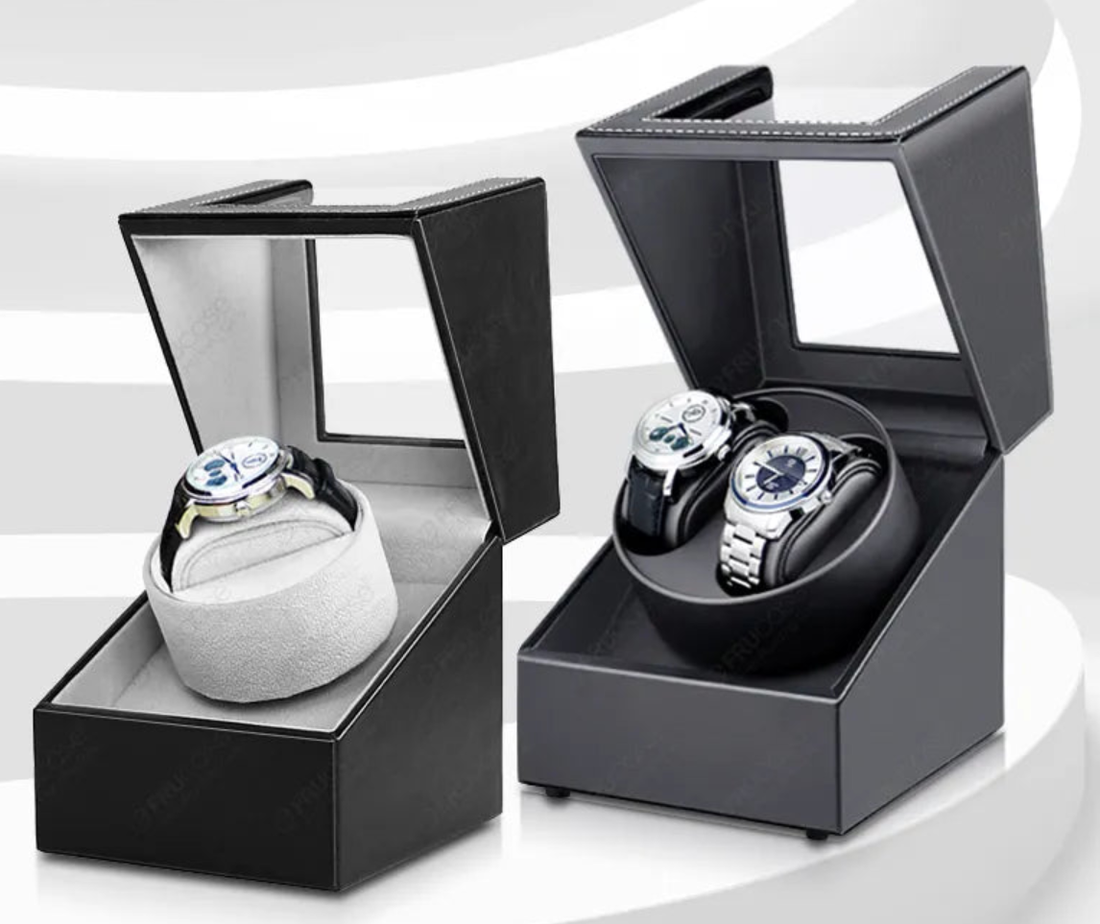Exploring the Inner Workings: Quartz, Mechanical, and Automatic Watches
Watches have come a long way from being mere timekeeping devices to intricate pieces of art and engineering. They come in various styles, designs, and, most importantly, movement types. Among the most popular are quartz, mechanical, and automatic watches. Each type has its unique characteristics, advantages, and appeal to different types of watch enthusiasts. In this blog, we will dive into the fascinating world of timekeeping and explore the differences between these three types of watches.
Quartz Watches: Precision and Practicality
Quartz watches are known for their precision and practicality. They are powered by a quartz crystal, which vibrates at a specific frequency when an electrical current is applied to it. This vibration is incredibly stable, making quartz watches highly accurate timekeepers. Here are some key features of quartz watches:
-
Accuracy: Quartz watches are renowned for their accuracy. They can typically keep time within a few seconds per month, far surpassing mechanical and automatic watches in this regard.
-
Low Maintenance: Quartz watches are low-maintenance since they require minimal servicing. The battery usually needs to be replaced every few years, and that's about it.
-
Affordability: In general, quartz watches are more affordable than their mechanical and automatic counterparts, making them accessible to a wide range of consumers.
-
Quartz Movement: These watches have a ticking second hand that moves once per second, giving them a distinct appearance.
Mechanical Watches: Artistry and Tradition
Mechanical watches, often referred to as "manual" watches, are the epitome of traditional watchmaking craftsmanship. They operate without the use of batteries or electronics and rely on intricate gears and springs. Here are some defining characteristics of mechanical watches:
-
Hand-Wound: Mechanical watches must be wound manually using the crown to store energy in the mainspring. Depending on the power reserve, they typically need winding every day or every few days.
-
Smooth Second Hand Sweep: Mechanical watches have a smoother, sweeping motion of the second hand, typically moving six to eight times per second. This creates an elegant and traditional aesthetic.
-
Craftsmanship: Mechanical watches are appreciated for their craftsmanship and artistry. Watchmakers meticulously assemble hundreds of tiny components to create these timepieces.
-
Limited Power Reserve: Mechanical watches often have a limited power reserve, usually between 36 to 48 hours. This means they should be worn regularly or placed on a watch winder to keep them running.
Automatic Watches: The Blend of Tradition and Convenience
Automatic watches, also known as self-winding watches, combine the elegance of mechanical watches with the convenience of modern technology. They have a rotor that moves with the motion of the wearer's wrist, winding the mainspring automatically. Here are some key features of automatic watches:
-
Self-Winding: Automatic watches do not require manual winding as long as they are worn regularly. The wearer's wrist movement keeps the watch powered.
-
Craftsmanship: Like mechanical watches, automatic watches are crafted with precision and attention to detail. They often feature transparent case backs, allowing enthusiasts to admire the intricate movements.
-
Smooth Sweep: Automatic watches also exhibit a smooth second hand sweep, providing a classic and luxurious feel.
-
Power Reserve: These watches typically have a longer power reserve compared to manual mechanical watches, ranging from 48 to 72 hours, or even longer in some cases.
In the world of horology, the choice between quartz, mechanical, and automatic watches ultimately comes down to personal preference. Quartz watches are valued for their accuracy and affordability, while mechanical and automatic watches appeal to those who appreciate the craftsmanship and tradition of traditional watchmaking.
Whether you opt for the precision of quartz, the timeless charm of mechanical watches, or the blend of tradition and convenience in automatic watches, each type has its own unique allure. Regardless of your choice, wearing a watch is not just about telling time; it's about making a statement and connecting with a rich history of craftsmanship and innovation in the world of timekeeping.

